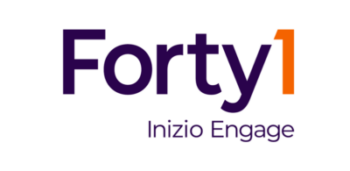Affinity Celebrations Series: Why You Should Care
 Luke-Matthew Iveson / 20 October 2023
Luke-Matthew Iveson / 20 October 2023While many organisations take pride in celebrating their business achievements, how often do they also invest the time to deeply understand and genuinely honour the affinity celebrations that matter to their people? These moments are not just dates in a calendar. They represent the shared experiences, struggles and traditions of entire communities. It goes beyond mere acknowledgment. It’s about understanding, supporting and celebrating the diversity that shapes not only our world but the experiences of every employee walking through our doors. Organisations must embrace and be accountable for embracing these celebrations.
Many of the affinity celebrations and days we acknowledge today were born out of resistance against deep-seated societal challenges like discrimination and prejudice. These were social movements driven by individuals who fought against these systemic adversities that persist even today. Like Black History Month, celebrated in February in the US and October in the UK. This affinity celebration began as a week-long event in 1926 by historian Carter G. Woodson, intended to spotlight the contributions and stories of African Americans in the face of racial discrimination. And in the UK in 1987, focusing on the Black British experience and similar challenges.
Then there’s International Women’s Day, observed every 8th March. This day traces back to the early 20th-century women’s labour movement. It wasn’t just a call for workplace equality; it was a rally against systemic sexism and misogyny, championing the efforts and successes of women worldwide in their fight for equal rights across all sectors of society. These dates are rooted in social justice and equity, and are potent reminders of the progress achieved, as well as the challenges that persist.
In today’s corporate landscape, affinity celebrations have become increasingly noticeable across organisations’ internal and external social channels. But have they become just checkmarks on our corporate communications calendars? Are we celebrating these days out of habit or accountability?
While these celebrations and days aim to foster belonging, drive social impact and pave the way for genuine inclusivity, the approach many organisations take can sometimes appear superficial. Tokenism is a genuine threat. Like asking the same Black employee to share their story every Black History Month, or changing your logo to rainbow colours during Pride Month without consistent support for broader LGBTQIA+ initiatives. Much like ‘green-washing’, these can become mere performative displays. It’s not enough to just ‘look’ inclusive and diverse; organisations must confront the challenge of authentically ‘being’ inclusive and diverse, ensuring that celebrations and acknowledgments are rooted in meaningful action.
To navigate these important communications initiatives and champion true inclusivity, we work with our clients across campaigns and initiatives driven by our 3As Approach: Accountability, Awareness and Action. This framework helps to form a roadmap, moving away from superficial celebrations and towards meaningful recognition and change. We also believe that the power of active listening and a bit of creative magic helps to drive real authenticity. Rather than creating campaigns and communications that could be for any company in any industry, it’s important to bring it back to your company purpose and employees’ lived experience.
So what do we mean by the 3As?
Accountability: Recognising that affinity days and celebrations require more than a casual social post here and there. Like Uncle Ben from Spider-man once said, ‘with great power comes great responsibility’. Organisations have the power to drive real change if they are accountable.
Awareness: Through education, self-reflection and continuous learning, we can truly embrace the significance of affinity celebrations. It’s not just about showing up to an office Pride party and waving a flag, or a free cultural pot lunch, but taking the time to learn and understand what the celebrations mean and aim to achieve.
Action: It’s not enough to simply voice support or have good intentions. Real impact comes from practical initiatives: from diversifying recruitment processes to investing in community programmes, or actively promoting and practising inclusivity year-round. For organisations, true commitment is measured in actionable steps that make a difference, not just in sentiment.
But for now, let’s focus on accountability, and what it really means for an organisation, and why it’s the first step in making affinity celebrations campaigns count. Accountability is about clear, purposeful communication. It’s about digging deep to understand the ‘why’ behind the ‘what’ and making sure everyone, at every level, gets it.
October marks Black History Month in the UK, a pivotal time not just for celebration and reflection, but also for organisations to demonstrate genuine commitment to Diversity, Equity and Inclusion (DEI). Using our 3As framework, with an emphasis on “Accountability”, here are some actions we recommend:
Elevate Black Voices & Engage Allies: While amplifying the perspectives of Black employees and inviting external Black professionals and activists to share insights, it’s equally crucial to engage non-Black employees in the conversation. Allies play a key role in driving change and taking accountability to foster an inclusive culture.
Honest Assessment of DEI Initiatives: Use this month to evaluate how Black voices have influenced your DEI policies over the year. Understand where you’ve excelled and where there’s room for growth.
Commit to Long-Term Initiatives: Forge year-long partnerships with Black-led or focused organisations. This isn’t about a one-off collaboration, but a sustained effort to support the Black community.
Encourage Continuous Dialogue & Active Listening: It’s not just about giving Black employees a platform, but truly listening to what they have to say. Foster initiatives that encourage feedback, ensuring their experiences and insights inform company decisions. Act on this feedback to shape an inclusive company culture.
Invest in Sponsorships and Partnerships: Consider sponsoring events, programmes, or initiatives that support the Black community. This could be in the form of scholarships, event partnerships, or collaborations with Black-owned businesses.



